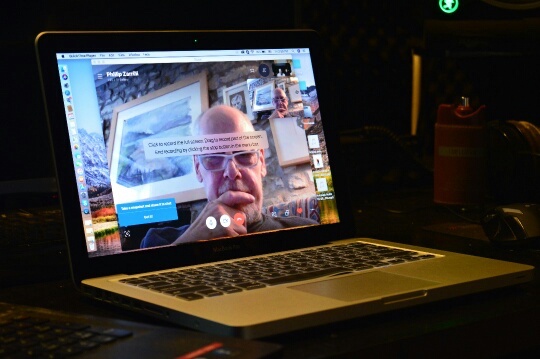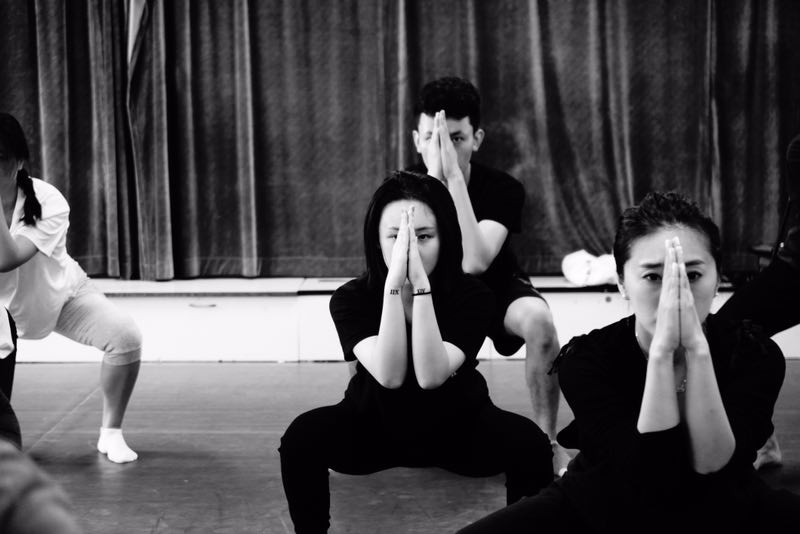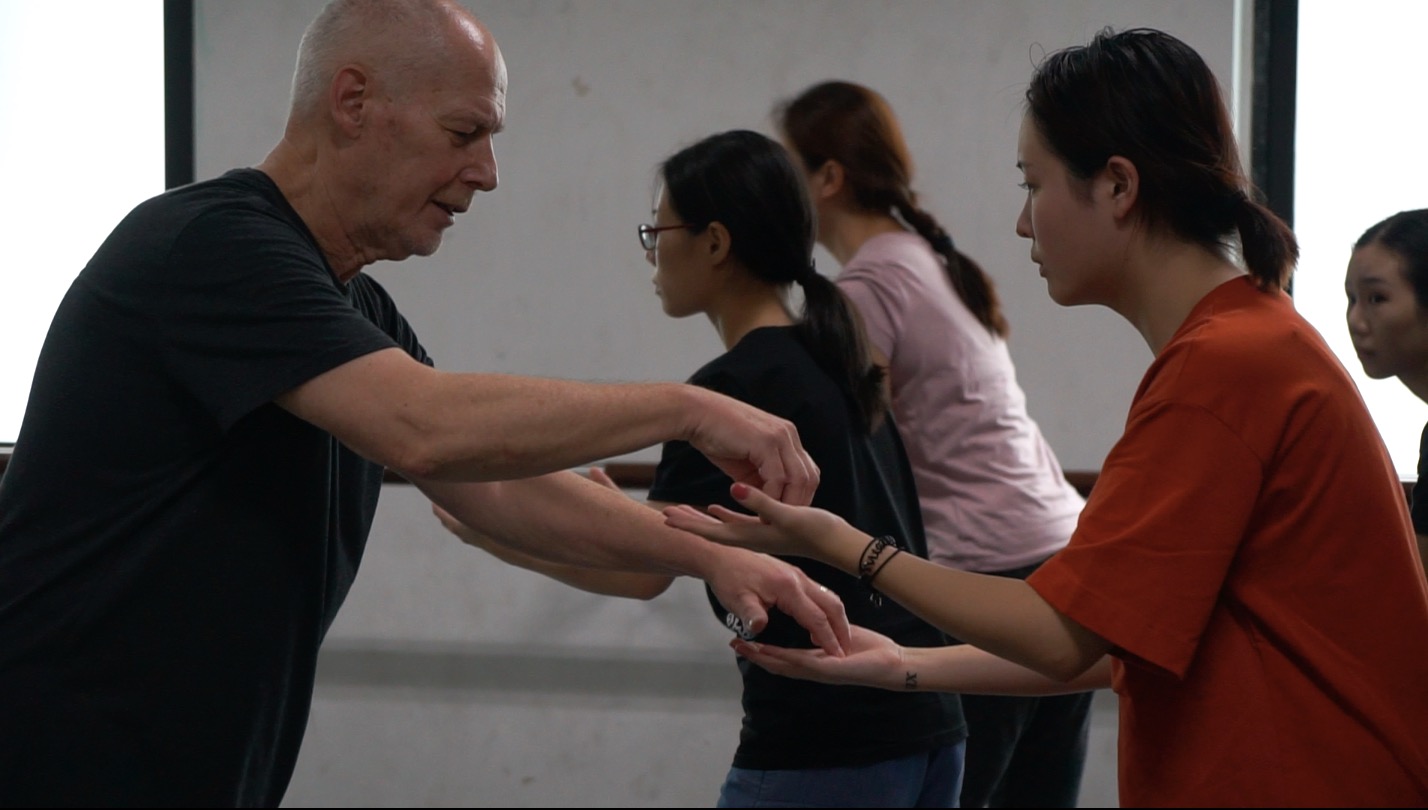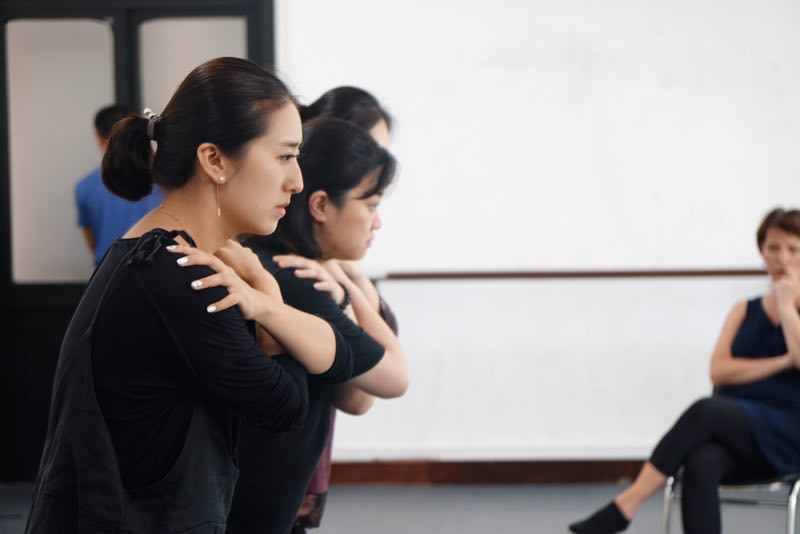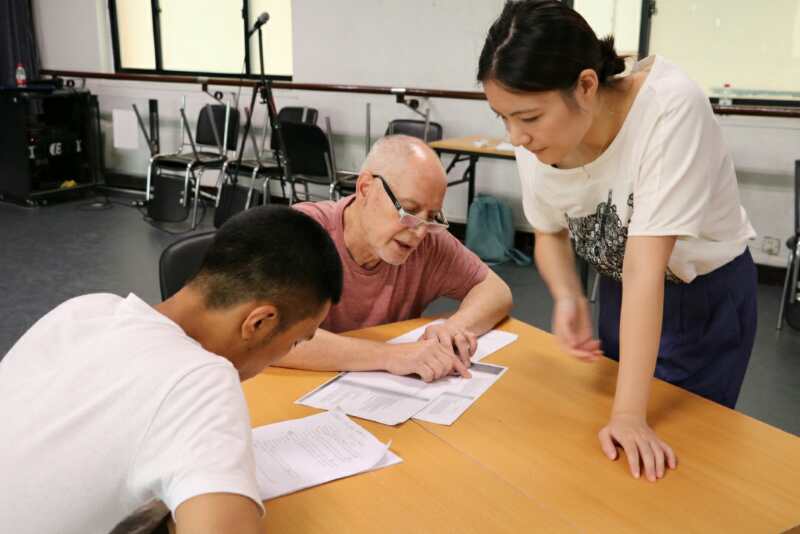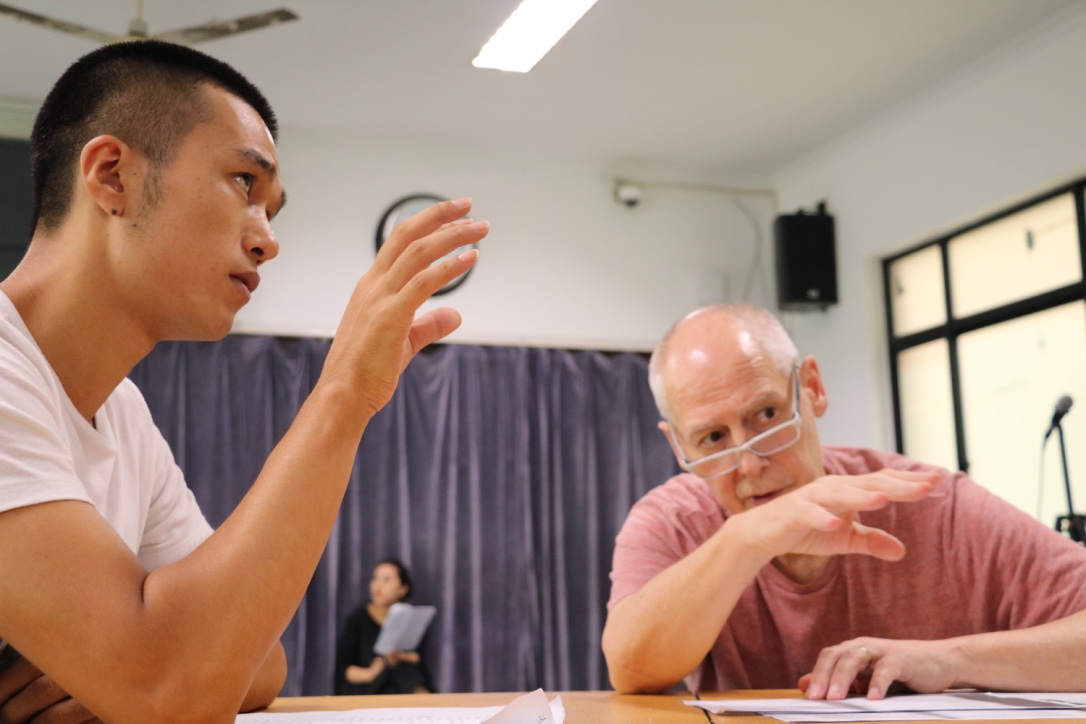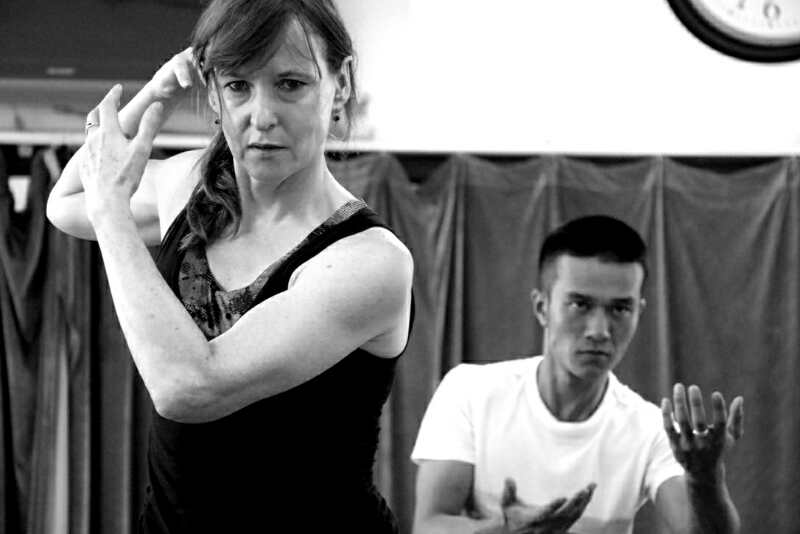The Llanarth Group (Phillip Zarrilli, Kaite O’Reilly, and Jo Shapland) returned last week from a week’s residency in Thrissur, Kerala as part of the 2020 ITFoK Festival in Thrissur, Kerala, India. Amitesh Ghosh—this year’s Artistic Director—invited us to share performances of Told by the Wind along with a three day intensive workshop for actors at the Calicut School of Drama, lectures from my new book, and an open ‘meet the artists’ session. We were very pleased to be able to accept the invitation, and with the additional support of Wales Arts International (ACW), we were able to be present in Thrissur from 15-22 January. Needless to say, it was an incredibly busy week !
It was very special for me to return to Kerala to share my approach to training contemporary actors using Asian martial arts and yoga—especially my use of kalarippayattu in helping actors learn how to ‘attune’ their attention and sensory awareness, and especially to share how we apply that sensory awareness work in performances of Told by the Wind.
The forty or so students who were at my three day workshop where I was assisted by Jo Shapland, responded incredibly well to the five and one half hours of intensive work. The Director of the Calicut School of drama—Sreejith Ramanan—organised our three days with the Calicut School of Drama students. I know Sreejith from his years at the Intercultural Theatre Institute in Singapore where I directed him in the 2008 production of Attempts on her Life. He is a marvel—doing wonderful creative and administrative work, and providing clear and sound leadership for the school.
Given that Told by the Wind is a response to East Asian/Japanese aesthetic principles and dramaturgy, and especially to ‘Quietude’ in performance, we were unsure what the response might be in Kerala. We were somewhat overwhelmed by the tremendously positive response to the work. Journalist/critic Renu Ramanath was with us throughout our week, attending my lectures, the workshop, and our performance, and writing to intelligently about our work:
Perhaps, the most precious experience of this ITFoK would be the opportunity it gave to watch a master performer at work - 'Told by the Wind,' co-created by Phillip Zarrilli and Kaite O'Reilly, performed by Zarrilli and Jo Shapland.
The synopsis refers Theatre of Quietude and String Theory (Quantum Physics). I haven't learnt much about either. But, there is no need to learn these theories to set myself afloat within the intimate world of silence and slowness that permeated the performance space. It was meditative, to put it briefly.
Earlier, during an interview, Zarrilli had mentioned about the play, describing how it was inspired by Japanese Noh and how the Japanese audience had identified with it, recognising how the classical art form informed the dramaturgy and movements.
Slowness is not new for those who are familiar with Kerala's classical theatre - Kutiyattam. Remember the entry of 'Azhakiya Ravanan,' Asokavanikankam. You'd barely notice the actor was moving, till you suddenly realise he has reached the front of the stage.
The performance might have been disappointing to many members of the audience who are used to look for story lines, for some kind of 'meaning.' Someone told me that he could not find anything to identify with, in it. There is no need to always 'identify' with something in a performance. You can just experience. He later added that he had enjoyed the silence and slowness. And that was what mattered.
Perhaps, for me, the most touching aspect of this performance was watching the aged master at work. Somehow, it was so reassuring. Here was a 72 year old man, an actor and trainer, who had mastered the martial art of Kalarippayattu many, many years ago, accepting the age creeping into his limbs so gracefully. He was not rejecting or refusing to accept ageing. Just accepting, with infinite grace. It was so touching, and so distinguished.
Earlier, I had got the opportunity to watch him conduct a three day long workshop for the students of the School of Drama. The energy that kept him on his feet the whole day was just amazing. And the way he'd show the movements to the students ! He'd add, 'I can't go down more than this, since I'm old now !' And would request the amazingly lithe performer Jo Shapland to demonstrate the movements. The youngsters found it tough to keep up with him.
Its a great and beautiful experience to have a great master among us. It's not always that we get to enjoy that privilege. Thank you, Amitesh, for making this happen.
Amitesh Grover, ITFoK Director: responded by saying…Amitesh Grover Thank you, it is indeed an honour to showcase Phillip’s work in the festival this year.
BEYOND ITFOK:
While in Kerala, I was able to return to the ‘roots’ of the traditions and modes of embodied practice that have been interwoven into my work as a performer, teacher/actor-trainer, and director. As always I returned to the CVN Kalari, East Fort, Thiruvananthapuram to pay my respects to my teacher, Gurukkal Govindankutty Nair—visiting his son who now runs the kalari—Gurukkal Sathyan Narayanan Nair, as well as Rajashekharan Nair who manages much of the teaching at the kalari. I ‘grew up’ in the kalari working closely with Sathyan and Rajan and owe so much to their work with me during my seven years at the kalari!
With Sathyan inside the CVN Kalari, Thiruvananthapuram
While in Thiruvananthapuram we also visited Prof. Prabodhachandran Nair—Professor of Linguists at Kerala University, and one of the most knowledgeable individuals about Kerala culture and its arts. Prof. Prabodhachandran Nair worked closely with me on the translation of four kathakali dance-drama plays in 1993—a wonderful time of collaboration enriched by his tremendous knowledge of kathakali. [The translations appear in Kathakali Dance-Drama: where gods and demons come to play, published in 2000.]
Next stops were in Cheruthuruthy and Killimangalam where I visited and paid respects to my kathakali teacher, long-term collaborator, and friend—MP Sankaran Namboodiri, as well as my dear dear friend, Kunju Vasudevan Namboodiripad of Killimangalam. What a wondrous time was had visiting, remembering, laughing (as always).



